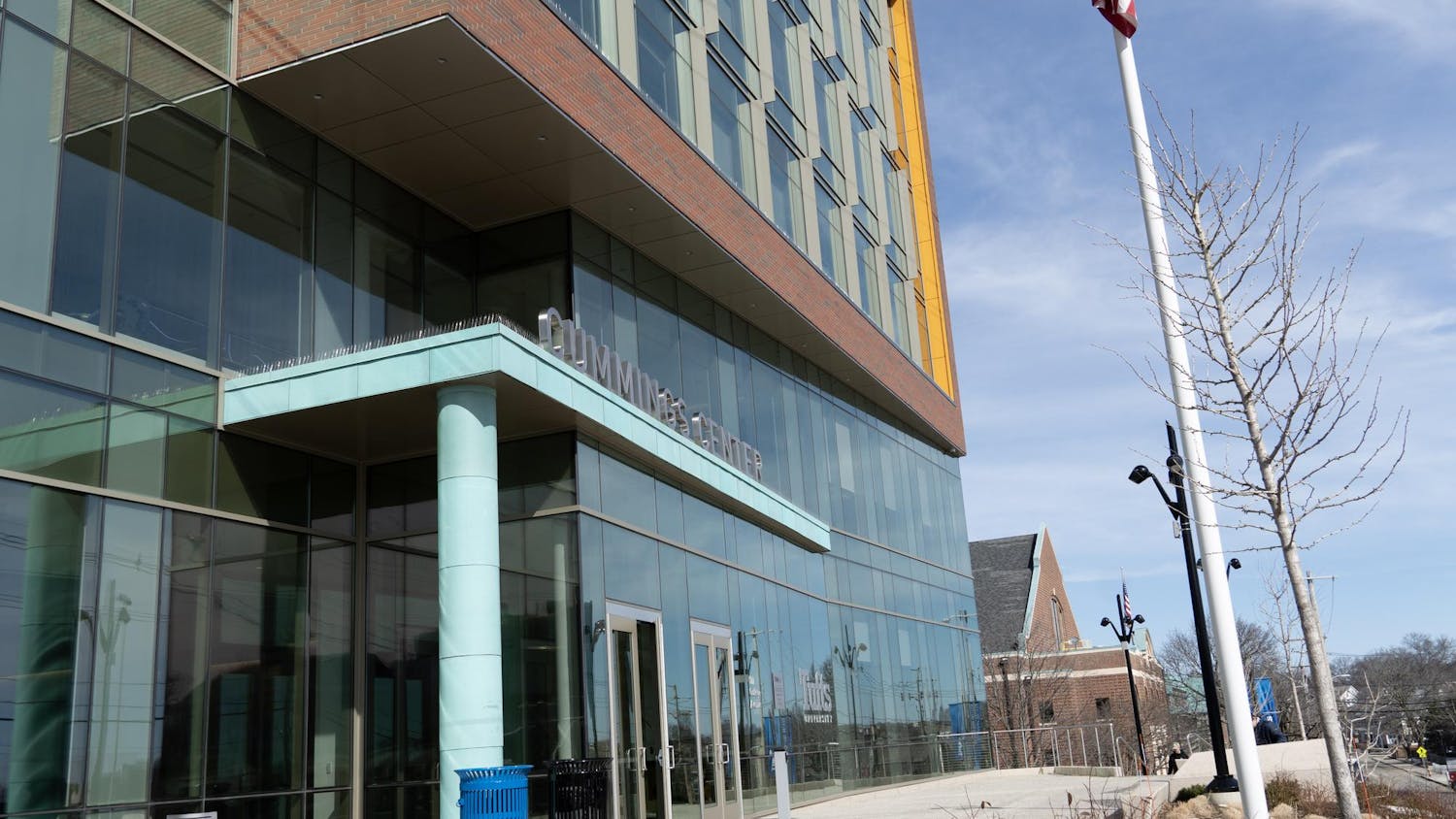Saffiyah Coker, a senior studying economics and international relations, was selected as the winner of the Wendell Phillips award and will deliver an address at this year’s Baccalaureate Ceremony.
The award, established in 1896, is named for the attorney, women’s and Native Americans’ rights activist, and abolitionist. The award is given to a senior who demonstrates marked ability as a public speaker and a sense of public responsibility.
The winner of the award delivers a speech at commencement intended to urge the graduating class to reflect on how they might improve the world through civic engagement.
Coker is a Tisch Scholar and is highly involved in the Africana Center. In an interview with the Daily, she spoke about her work in civic engagement and what she hopes to convey to the Class of 2024 through her speech.
Editor’s note: This interview has been lightly edited for clarity and brevity.
Tufts Daily (TD): I’m curious why you applied and how you found out about the Wendell speakership.
Saffiyah Coker (SC): That’s a good question. I found out about Wendell Phillips maybe a couple years ago. I was familiar with who the past grads are, being in the Africana Center and being Black women on campus. Isabelle Charles and René LaPointe Jameson were always such great examples of how to live life and how to love your community. I knew that I wanted to speak at graduation because I’ve come to know a lot of different people on campus and a lot of different aspects of campus life. There’s so much strife and conflict, and I’m not gonna have the answers to all of that, but I wanted to say my piece and give my own reflections on how I feel.
TD: I was curious if you could talk a little bit about your background with civic engagement and what clubs you’ve been involved in on campus.
SC: My first year of college I was in JumboVote. We’re graduating in an election year and we came into college in an election year — I wanted to see what it meant to participate in a democratic process, especially because I could vote now. All the stuff that I did my first year at Tufts was to try and get my feet in a lot of different places, so I would try my best to get involved in the Africana Center.
Sophomore year, I became a Tisch Scholar, which has been one of my favorite and most important parts of my time at Tufts. It gave me such a valuable community. I met so many friends. But it also allowed me to get off Tufts campus and go into Somerville and Medford and even Boston. I’m from Boston, but I went to school outside of where I live. For my first placement sophomore year, it was another election, and we did a lot of canvassing in my neighborhood, so Tisch Scholars gave me a lot of opportunities to get to know the Boston area.
TD: Do you feel like Tufts encourages people to be more civically engaged?
SC: I think that Tufts promotes a specific type of civic engagement, which is why I think it’s really important to think independently for yourself. The whole point of college is that it will teach you to think in a certain way. It doesn’t really matter the discipline; you’re coming here to learn a specific school of thought and then bring that thought out to the rest of the world. One thing my time at Tufts has challenged me to do is rethink what civic engagement is and who it’s actually for.
TD: Care to elaborate a little bit on that?
SC: When I think of civic engagement, the first thing that comes to mind is voting. But it also is a lot about community building, and it can seem like some of the programs that are emphasized are like, “volunteer!” All of that stuff is really important, but another really important part is understanding, well, why are we volunteering? What does it mean to be in this space temporarily, for four years or a semester? An important part of being engaged and civic-minded is like questioning the things that you’re doing, and I don’t really feel like we do that all the time.
TD: What kind of message do you hope to leave with the greater Tufts community in your speech?
SC: One of the main messages I'm trying to convey is the interconnectedness of everything. You’re obviously not studying everything; you’re studying your specific thing. But what I’ve really understood from my time at Tufts is that everything is connected. Like, racism, for example, you can learn about that in science. You can learn about engineering through art and sociology. If we were to see everything that we’re doing less as disparate but more as building blocks upon each other, we could all have a new perspective.
TD: Is there anything else you’d like to add that I haven’t asked about? Hopes? Dreams?
SC: There’s a lot of pressure in college to find the ultimate version of yourself, but the version that you are now is only one version of you. We’re all still continuously changing into who we’re gonna be next. You may not feel like you’ve accomplished everything you wanted to, or you're scared because you’ve accomplished so much and you don't know what’s next; that’s fine, because it’s not done. It’s really just the beginning.






